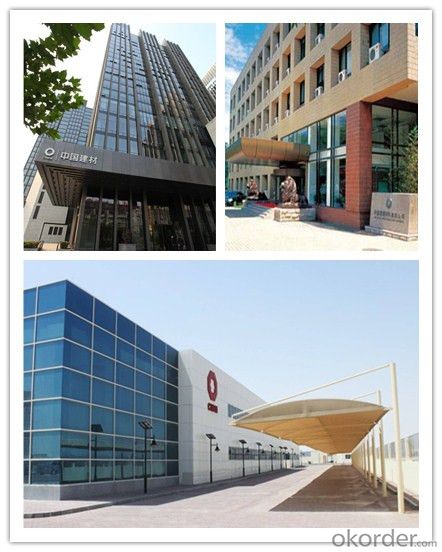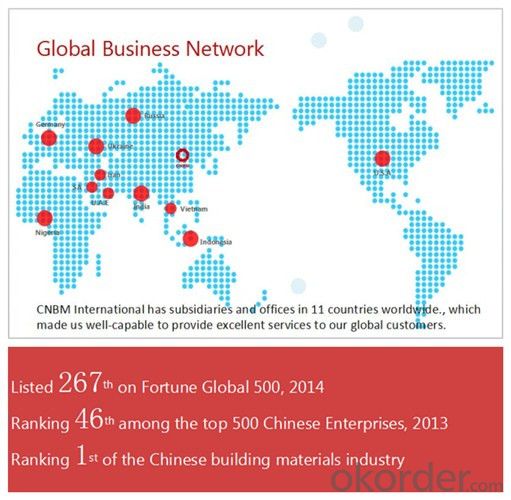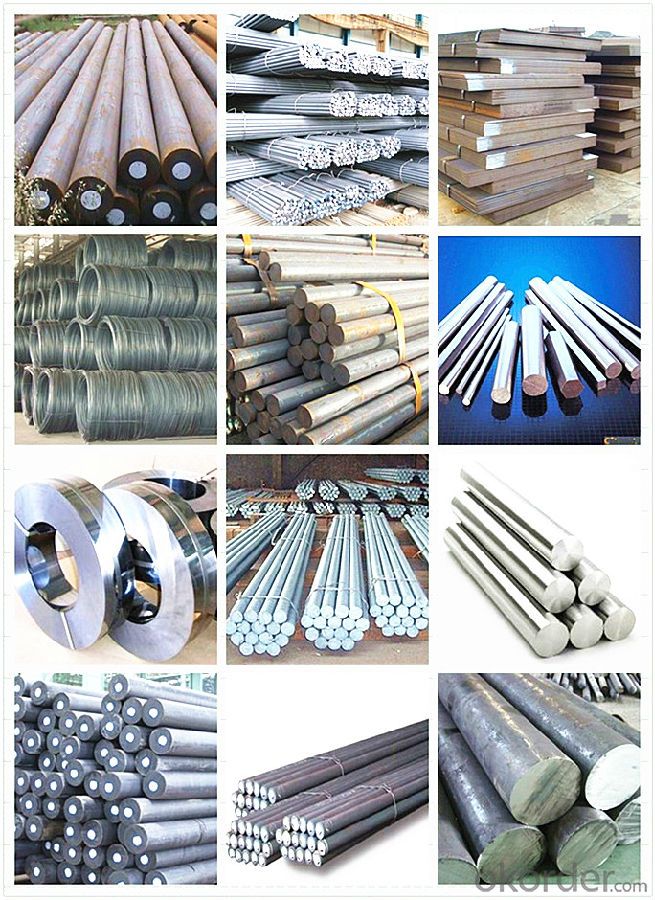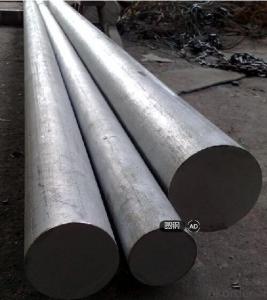4130 Steel Rod/4130 Steel Bar/Alloy Steel Bar
- Loading Port:
- Qingdao
- Payment Terms:
- TT OR LC
- Min Order Qty:
- 5 m.t.
- Supply Capability:
- 100000 m.t./month
OKorder Service Pledge
Quality Product, Order Online Tracking, Timely Delivery
OKorder Financial Service
Credit Rating, Credit Services, Credit Purchasing
You Might Also Like
Item specifice
Type:
Carbon Steel,Spring Steel,Bearing Steel,Gear Steel,Deformed Steel,Stainless Steel,Alloy Steel
Shape:
Steel Coil,Steel Sheet,Steel Wire Rod,Steel Flat Bar,Steel Square Bar,Steel Angle,Steel Round Bar,Steel Billets
Technique:
Hot Rolled,Cold Rolled,Cold Drawn,ERW,Forged,Saw,Extruded,EFW,Spring
Surface Treatment:
Galvanized,Coated,Copper Coated,Color Coated,Oiled,Dry,Chromed Passivation,Polished,Bright,Black,PVDF Coated
Certification:
ISO,SGS,BV,IBR,RoHS,CE,API,BSI,UL
Thickness:
4mm-800mm
Width:
4mm-800mm
Length:
6-12m
Outer Diameter:
4mm-800mm
Net Weight:
100kg
Packaging:
seaworthy packaging
4130 Steel Rod/4130 Steel Bar/Alloy Steel Bar
Detailed Information of 4130 Steel Rod/4130 Steel Bar/Alloy Steel Bar
| Name | Steel Round Bar |
| Shape | Round Bar/Square Bar/Flat Bar/Plate/Wire |
| Standard | GB/ASTM/SAE/AISI/DIN/JIS/EN/BS |
| Surface Treatment: | Black/Peeling/Polished/Machined |
| Delivery Condition: | Hot Rolled or Forged/Peeled or Black Surface |
| Test | SGS/UT 100% Elements Testing |
| Certificate: | ISO/Mill Certificate |
| Service: | 24 hours online service / |
| more than 20 years trading and manufacture | |
| Quality Assurance: | the third party inspection, such as SGS, BV, TUV…etc. is acceptable |
| Packaging Details: | Seaworthy Packaging or as per customer's packing instruction |
Product Overviews of 4130 Steel Rod/4130 Steel Bar/Alloy Steel Bar
| Product Name | Typical Grades | Diameter(mm) | Standard Adopted |
| Carbon Steel | 20 (1020/S20C/C22) | ||
| 40 (1040/S40C/C40) | Ø16-Ø300 | ||
| 45 (1045/S45C/C45) | |||
| Bearing Steel | GCr9 (51100/SUJ1) | ||
| GCr15 (52100/SUJ2/100Gr6) | Ø12-Ø250 | ||
| GCr9SiMn (A485-Gr.1/SUJ3) | GB/SAE/ | ||
| Cr-Mo Steel | 20Cr (5120/SCr420H/20Cr4) | JIS/DIN | |
| 40Cr (5140/SCr440/41Cr4) | Ø12-Ø250 | ||
| 42CrMo(4140/SCM440/42CrMo4) | |||
| Gear Steel | 20CrNiMo | ||
| 20CrMn(5115/SMnC420/20MnCr5) | Ø16-Ø600 | ||
| 20CrNiMo(8620/SNCM220/20CrMiMo2) |
Company Introduction of 4130 Steel Rod/4130 Steel Bar/Alloy Steel Bar
CNBM International Corporation is the most import and export platform of CNBM group(China National Building Material Group Corporation) ,which is a state-owned enterprise, ranked in 270th of Fortune Global 500 in 2015.
With its advantages, CNBM International are mainly concentrate on Cement, Glass, Iron and Steel, Ceramics industries and devotes herself for supplying high quality series of refractories as well as technical consultancies and logistics solution.


| After-sale service | l CNBM provides the services and support you need for every step of our cooperation. We’re the business partners you can trust; you can relax and get on with doing business. |
| l For any problem, please kindly contact us at any your convenient time, we’ll reply you in our first priority within 24 hours | |
| Advantages | l Industry experience over 20 years. |
| l Shipment of goods -More than 70 countries worldwide. | |
| l The most convenient transport and prompt delivery. | |
| l Competitive price with best service. | |
| l High technical production line with top quality products. | |
| l High reputation based on best quality products. | |
Packaging & Delivery of 4130 Steel Rod/4130 Steel Bar/Alloy Steel Bar
| Packaging Detail | Sea worthy packing /as per customer's packing instruction |
| Delivery Detail | 15 ~ 40 days after receiving the deposit |
Products Show

FAQ:
| Are you a trading company or manufacturer? | Manufacturer |
| What’s the MOQ? | 1000m2 |
| What’s your delivery time? | 15-20 days after downpayment received |
| Do you Accept OEM service? | Yes |
| what’s your delivery terms? | FOB/CFR/CIF |
| What's the Payment Terms? | 30% as deposit,70% before shipment by T/T |
| Western Union acceptable for small amount. | |
| L/C acceptable for large amount. | |
| Scrow ,Paybal,Alipay are also ok | |
| Why choose us? | Chose happens because of quality, then price, We can give you both. Additionally, we can also offer professional products inquiry, products knowledge train (for agents), smooth goods delivery, excellent customer solution proposals. |
| What's your available port of Shipment? | Main Port, China |
| What’s your featured services? | Our service formula: good quality+ good price+ good service=customer's trust |
| Where are your Market? | Covering more than 160 countries in the world |
- Q:How does special steel contribute to the production of precision instruments?
- Special steel contributes to the production of precision instruments by providing the necessary strength, durability, and resistance to corrosion. Its unique properties allow for the manufacturing of intricate components with tight tolerances, ensuring the precision instruments function accurately and reliably.
- Q:What are the requirements for special steel used in high-pressure applications?
- Special steel used in high-pressure applications must meet certain requirements in order to ensure its durability and reliability under extreme conditions. Some of the key requirements for this type of steel include: 1. High strength: Special steel for high-pressure applications needs to have exceptional strength to withstand the intense forces and pressures it will be subjected to. This allows it to resist deformation and maintain its structural integrity. 2. Excellent corrosion resistance: The steel must have a high resistance to corrosion, as it will often come into contact with aggressive fluids or gases in high-pressure environments. This prevents the steel from deteriorating over time and helps to maintain its performance and longevity. 3. Good weldability: Special steel used in high-pressure applications should possess good weldability to enable easy and efficient joining of different components. This ensures the overall integrity and reliability of the system. 4. High temperature resistance: The steel must have the ability to withstand elevated temperatures without losing its mechanical properties. This is particularly important in applications where high-pressure fluids or gases are heated or where the steel is exposed to extreme heat sources. 5. Fatigue resistance: Special steel should have a high resistance to fatigue failure, as it will often be subjected to cyclic loading and pressure fluctuations. This allows the steel to withstand repeated stress and pressure cycles without developing cracks or failures. 6. Tight dimensional tolerance: The steel should have tight dimensional tolerance to ensure proper fit and functionality within the high-pressure system. This helps to minimize leakage or any potential weak points in the system. 7. Compliance with industry standards: Special steel used in high-pressure applications should meet relevant industry standards and specifications, such as those set by organizations like the American Society of Mechanical Engineers (ASME) or the American Petroleum Institute (API). This ensures that the steel meets the required quality and performance standards. Overall, special steel for high-pressure applications needs to possess a combination of high strength, excellent corrosion resistance, good weldability, high temperature resistance, fatigue resistance, tight dimensional tolerance, and compliance with industry standards to ensure its suitability and reliability in demanding environments.
- Q:How is special steel used in the construction industry?
- Special steel is used in the construction industry for a variety of purposes such as reinforcing concrete structures, constructing high-rise buildings, manufacturing heavy machinery, and producing durable and corrosion-resistant components. It provides strength, flexibility, and longevity to construction projects, ensuring their safety and structural integrity.
- Q:What are the requirements for special steel used in cryogenic applications?
- To ensure optimal performance and reliability in extremely low-temperature environments, special steel employed in cryogenic applications must fulfill a range of prerequisites. First and foremost, the steel must exhibit exceptional low-temperature toughness, enabling it to endure the extreme cold without succumbing to brittle fracture or compromising its mechanical properties. It is imperative that the steel possesses high toughness and ductility to effectively absorb impacts and prevent cracking. Moreover, the steel must possess a low coefficient of thermal expansion. This characteristic assumes significance as cryogenic applications involve substantial temperature fluctuations. A high coefficient of thermal expansion can result in dimensional instability and stress within the material. Conversely, a low coefficient of thermal expansion mitigates these effects and maintains dimensional stability. Furthermore, the steel should demonstrate low thermal conductivity. Given that cryogenic applications often entail the transfer or storage of substances at extremely low temperatures, minimizing heat transfer is essential. A low thermal conductivity aids in maintaining the desired temperature and prevents unwanted heat exchange. This aspect is particularly critical in applications where precise temperature control is paramount, such as the storage of liquefied gases. In addition, the steel must exhibit excellent corrosion resistance. Cryogenic environments can be highly corrosive, necessitating the steel's ability to withstand the detrimental effects of corrosive substances that may be present. This attribute is particularly vital in applications involving the storage or transportation of cryogenic liquids or gases. Finally, the steel should possess good weldability. Welding is often necessary to join different components or sections of the steel in cryogenic applications. Therefore, ensuring the steel's weldability is crucial to establish strong and reliable joints. In summary, the requirements for special steel used in cryogenic applications encompass exceptional low-temperature toughness, a low coefficient of thermal expansion, low thermal conductivity, excellent corrosion resistance, and good weldability. Satisfying these requirements guarantees the steel's ability to withstand the harsh conditions and extreme cold of cryogenic environments while preserving its structural integrity and performance.
- Q:How does special steel contribute to the agricultural machinery industry?
- The agricultural machinery industry heavily relies on special steel to improve the overall efficiency, durability, and productivity of agricultural equipment. A major advantage of special steel in this industry is its exceptional strength and toughness, which allows for the production of robust and reliable machinery. Agricultural equipment, including tractors, combines, and harvesters, often faces intense operational conditions such as heavy loads, extreme temperatures, and exposure to corrosive elements. Special steel provides the necessary strength and resistance to withstand these challenging environments, ensuring optimal performance for extended periods. Furthermore, special steel alloys offer excellent wear resistance, enabling agricultural machinery to endure the abrasive nature of farming operations. This is especially crucial for components like blades, plows, and tillage tools, which are constantly exposed to soil, rocks, and other abrasive materials. By utilizing high-quality special steel, manufacturers can manufacture durable and long-lasting equipment, reducing maintenance requirements and improving the overall reliability of agricultural machinery. In addition, special steel allows for the development and construction of more efficient agricultural machinery. Thanks to its superior strength-to-weight ratio, special steel facilitates the production of lighter yet robust equipment. Consequently, this improves fuel efficiency, reduces energy consumption, and enhances maneuverability. Moreover, special steel's excellent machinability and formability enable manufacturers to create intricate and customized components, meeting specific agricultural needs and increasing machinery efficiency. Moreover, special steel contributes to the agricultural machinery industry by providing resistance to corrosion and rust. Agricultural equipment is often exposed to moisture, fertilizers, and chemicals, which can result in corrosion and degradation over time. Special steel alloys with corrosion-resistant properties, such as stainless steel, can significantly prolong the lifespan of machinery and reduce maintenance costs. In conclusion, special steel is indispensable for the agricultural machinery industry as it enhances the durability, efficiency, and productivity of equipment. Its strength, wear resistance, design flexibility, and corrosion-resistant properties make it the preferred choice for manufacturing high-quality machinery capable of withstanding the demanding conditions of agricultural operations.
- Q:How does special steel contribute to the manufacturing of springs for automotive applications?
- Special steel is crucial for the manufacturing of springs in automotive applications because it offers high strength, durability, and excellent fatigue resistance. It allows springs to withstand heavy loads, vibrations, and extreme temperatures while maintaining their shape and performance over time. Special steel also provides flexibility in design, allowing for the production of springs with specific characteristics such as improved stability, reduced weight, and enhanced energy absorption. Overall, the use of special steel in spring manufacturing ensures reliable and efficient performance in automotive applications.
- Q:Classification of special steel products
- Carbon steel, also called carbon steel, is an iron carbon alloy with a carbon content of less than 2% wc. Carbon steel, in addition to carbon, usually contains a small amount of silicon, manganese, sulfur and phosphorus.Carbon steels can be divided into three categories: carbon structural steel, carbon tool steel and free cutting structural steel by use. Carbon structural steel can be divided into two kinds of structural steel and machine building steel.
- Q:What are the different heat treatment furnaces used for special steel?
- There are several different heat treatment furnaces that are commonly used for special steel. These furnaces serve specific purposes and are designed to provide the required heating and cooling conditions for the steel to achieve the desired properties. One type of heat treatment furnace used for special steel is the annealing furnace. Annealing is a process that involves heating the steel to a specific temperature and then slowly cooling it to make it softer and more ductile. Annealing furnaces often have controlled atmospheres to prevent oxidation of the steel during the process. Another type of furnace used for special steel is the quenching furnace. Quenching is a process that involves rapidly cooling the steel to increase its hardness. Quenching furnaces are designed to provide the necessary cooling rate and often use specialized cooling mediums such as oil or water to achieve the desired results. Tempering furnaces are also commonly used for special steel. Tempering is a process that involves heating the steel to a specific temperature and then cooling it to improve its toughness and reduce brittleness. Tempering furnaces allow for precise temperature control during the process. In addition to these, there are also carburizing furnaces used for special steel. Carburizing is a process that involves introducing carbon into the steel's surface to increase its hardness. Carburizing furnaces have controlled atmospheres and are designed to provide the necessary temperatures and carbon-rich environments for the process. Overall, the different heat treatment furnaces used for special steel serve specific purposes such as annealing, quenching, tempering, or carburizing. These furnaces are designed to provide the required heating and cooling conditions to achieve the desired properties in the steel.
- Q:How does special steel contribute to the pharmaceutical industry?
- Special steel contributes to the pharmaceutical industry by providing the necessary materials for the production of high-quality equipment and tools. It is used in the manufacturing of pharmaceutical machinery, such as reactors, mixers, and pumps, that require corrosion resistance and hygienic properties. Special steel also plays a crucial role in the construction of storage and transportation containers for pharmaceutical products, ensuring their safety and efficacy.
- Q:How is heat-resistant steel used in the production of furnaces and boilers?
- Heat-resistant steel is used in the production of furnaces and boilers due to its ability to withstand high temperatures. It is utilized in various components such as heat exchangers, tubes, and piping systems, ensuring efficient heat transfer and preventing structural damage. This steel's resistance to oxidation and corrosion guarantees longevity and reliability, making it an essential material for manufacturing furnaces and boilers.
1. Manufacturer Overview |
|
|---|---|
| Location | |
| Year Established | |
| Annual Output Value | |
| Main Markets | |
| Company Certifications | |
2. Manufacturer Certificates |
|
|---|---|
| a) Certification Name | |
| Range | |
| Reference | |
| Validity Period | |
3. Manufacturer Capability |
|
|---|---|
| a)Trade Capacity | |
| Nearest Port | |
| Export Percentage | |
| No.of Employees in Trade Department | |
| Language Spoken: | |
| b)Factory Information | |
| Factory Size: | |
| No. of Production Lines | |
| Contract Manufacturing | |
| Product Price Range | |
Send your message to us
4130 Steel Rod/4130 Steel Bar/Alloy Steel Bar
- Loading Port:
- Qingdao
- Payment Terms:
- TT OR LC
- Min Order Qty:
- 5 m.t.
- Supply Capability:
- 100000 m.t./month
OKorder Service Pledge
Quality Product, Order Online Tracking, Timely Delivery
OKorder Financial Service
Credit Rating, Credit Services, Credit Purchasing
Similar products
New products
Hot products
Related keywords
































